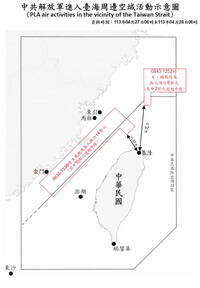《TAIPEI TIMES》 ‘Green’ energy rules take effect

Google’s data center at the Changhua Coastal Industrial Park is pictured in an undated photograph. The US company in 2019 announced it was purchasing the output of a 10 megawatt solar array in Tainan, its first renewable energy deal in Asia. Photo courtesy of Google
By Angelica Oung / Staff reporter
About 300 of the nation’s biggest corporate users of electricity will be required to boost their use of renewable energy from today, the Ministry of Economic Affairs said yesterday.
The threshold for defining a large user is an electricity account that has a 5,000 kilowatt capacity contract with Taiwan Power Co (台電), the ministry said, adding that 500 accounts belonging to about 300 companies fit the criteria.
Large users are required to boost their use of renewable energy to 10 percent within five years, it said.
The Regulations Governing the Chartered Capacity on Electricity Consumption Agreements Which the Users Shall Install Renewable Energy Facilities for Exceeding a Certain Capacity (一定契約容量以上之電力用戶應設置再生能源發電設備管理辦法) were originally due to take effect in November 2019, but were delayed, first due to a corporate backlash and then the COVID-19 pandemic.
Last-minute negotiations led to a concession for large users already producing renewable energy. Their pre-existing renewable energy production would count toward up to 20 percent of their requirement, Bureau of Energy Deputy Director-General Lee Chun-li (李君禮) said.
“Companies argued that they should be rewarded for already complying with the policy, but at least 80 percent of the requirement would still have to come from new builds,” Lee said.
Another way companies can reduce the requirement is by fulfilling it ahead of time, he said.
“Early birds” who fulfill the requirement within three years would receive a 20 percent requirement reduction, while those fulfilling it within 10 years would receive a 10 percent reduction, he added.
In addition to building their own renewable energy generation facilities, large users can comply with the requirements by purchasing “green” energy certificates, installing energy storage solutions or by paying an additional fee, Lee said.
“Paying a fee is going to be the most expensive option for companies. We want to encourage them to participate in renewable energy production,” he said.
Although the regulations have been criticized for being watered-down and affecting only a small number of users, Lee said the impact on overall use of renewable energy would be substantial.
“The 300 users make up 49 percent of the nation’s electricity use,” he said. “Lowering the threshold would affect a lot more users without having much of an impact.”
The regulations are to be reviewed in two years to see if the criteria for being a large user should be lowered or the percentage of renewable energy increased, Lee said.
Most large users are companies in the semiconductor, steel and petroleum sectors, and many have already committed to using more renewable energy than the regulations require due to supply chain demands, he said.
“We used to have to chase up companies to get them to use more renewable energy, now they are asking us where they can buy more,” Lee said.
Apple Inc, Microsoft Corp, Google, Facebook Inc and Walmart Inc are among the companies who have taken an “RE100” pledge — to transition to using 100 percent renewable energy.
The world’s largest contract chipmaker, Taiwan Semiconductor Manufacturing Co (台積電), took the RE100 pledge in July last year.
Chung-Hua Institution for Economic Research (中華經濟研究院) RE100 representative Alisha Lee (李承歡) said that while she welcomed the new requirements for large users, the regulations would exacerbate the problem of the high cost of renewable energy in Taiwan.
“While we hope to see more users transition to renewable energy, it is also important to drive down the cost of renewable energy, especially so that small and medium-sized enterprises can compete with large users,” Alisha Lee said. “I think there is high corporate demand and interest in renewable energy, but prohibitive cost is a major barrier.”
新聞來源:TAIPEI TIMES

















